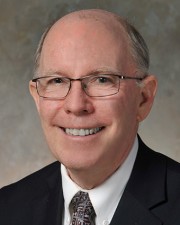
Norton Asset Management
I have been asked to do a retrospective look back and a look forward. 2018 was more of the same for commercial real estate. All sectors advanced except retail. However, there was tightening in multifamily and office. This is measured by lease rates, which were softening but mostly with additional concessions and sweeteners such as additional free rent, turnkey fit-ups, etc. It is also measured by rising cap rates on sales of investment properties. We continue to see more money chasing fewer solid properties. Technology upgrades and tighter office environments continue to shrink leased footprints. There is still some more of this ahead. We now see standard office parks (and buildings) “under-parked.” The historical norm was four parking spaces for every 1,000 s/f (1/250 s/f). Today, we see requirements for 6, 7 or 8 parking spaces for every 1,000 s/f of office space. Older properties simply do not have the land to achieve this and parking decks are expensive.
The numbers are not out yet, but the clear sense is that office transactions are mostly current tenants in the market relocating, trading up. We are not seeing many new tenants and those we do see are smaller. This has been a trend for a while. Much of the chat in the coffee shops (and bars!) is about tariffs and the slowing of trade. However, so far it has been mostly talk and we cannot pinpoint any direct impacts in the N.H. market (yet).
I just returned from a trip with the Concord Chamber of Commerce to Hong Kong and Thailand. They love Trump over there – anyone who pokes a stick at China is a fan of theirs. China took back Hong Kong in 1997. They are pumping 200,000 - 300,000 mainland Chinese onto the islands every year. In 2028 they will be the majority. The cost of housing is in the stratosphere – about $650,000 U.S. for a 700 s/f flat. The density of people is overwhelming. We stayed in a “small” 1,362 s/f room hotel. Most new apartment buildings are 71 stories! The big takeaway: There are millions of people working very hard in Southeast Asia to earn $3,000 - $4,000 U.S. We found the Thais to be friendlier, happier and presumably more productive. So far, textiles have largely migrated to Vietnam, Laos, Cambodia, Thailand (and Bangladesh). But light assembly and some manufacturing has followed. The word is most countries would rather deal with these “tigers” than China. The key reason is trust – specifically the pirating of software and intellectual property. Ironically, as Jeff Fuhrer of the Boston Fed pointed out, it is exactly what we here in the U.S. did in the 1800s – we “imported” the Industrial Revolution from Great Britain!
So, looking ahead we see record low unemployment which is likely to drive up wages – which in turn could push up inflation. At the national CRE meetings which I attend, the pundits are closing the window – the “correction” in the markets and overall economy is coming – now forecast for 14 - 20 months (v. 24 - 36 months six months ago). It is a “correction,” not a recession (two consecutive quarters with negative growth). Time will tell. While the U.S. continues to sputter along, the rest of the world is limping - Brexit, the E.U., Turkey and continued deceleration in China. This all puts the FED in a tough spot, too much tightening is not good, nor is too little. One big factor is another $300 billion of debt that is going to be added to the 2018 Federal deficit. These are all tactical moves for the FED and Congress while long-term and strategically we have serious financial imbalances – the mismatch of young graduates, both high school and college, with job openings; ongoing rising costs of healthcare; underfunding of Medicare, Medicaid and Social Security; as well as $1 trillion annual deficits. It is not a pretty picture, but one for those of us on Main St. to bring into focus as it is masked by the softness of other regions of the world. Thus, the U.S. remains the safe harbor and continues to attract global money.
So, once again, we see 2019 being more of the same – a sluggish, tepid moving forward with 2% GDP growth. For commercial real estate, not much change, slow-but-steady forward motion.
Bill Norton, CRE, FMA, Hon. AIA NH, is a principal of Norton Asset Management, Manchester, N.H.
.png)






